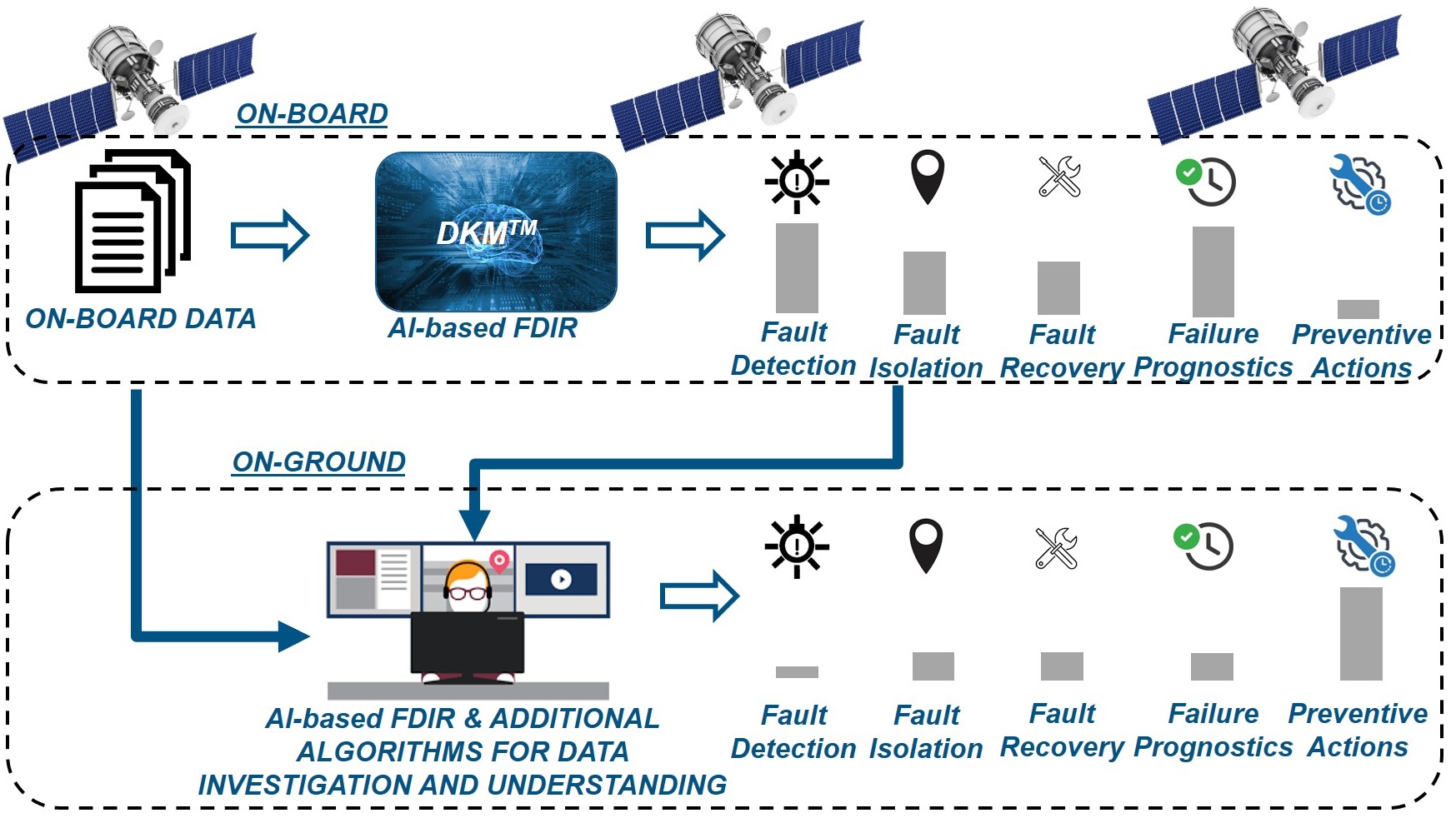Constellations require complex operations and must grant high service availability. This makes autonomy and enhanced on-board FDIR one of the most urgent developments for the reduction of operational costs and of reaction times to events. Recent activities aim to use AI to improve FDIR. However, some key issues have to be faced:
- the lack of suitable OPS data resolution for algorithms training on ground,
- the need for a FDIR that is robust to the variability of the satellite operational contexts, which may not all be tested or simulated during the mission preparation.
The proposed activity aims at defining a complete workflow to deal with the above issues and assessing the feasibility and usefulness of the Diagnostic Kernel Modules that implement advanced techniques exploiting Machine Learning to improve current FDIR systems in terms of: Early detection of incipient faults, Early identification of possible root causes, Identification of multiple unrelated yet concurrent faults, Time to failure prediction.
The proposed solution is innovative in that: 1) It implements a reusable workflow for the exploitation of existing simulation models to generate data, 2) It uses the DKM libraries that were developed and validated in operations by SATE in the automotive and energy fields, which can be easily reconfigured for multiple use cases; 3) It foresees a Training-over-the-air approach to exploit OPS data labelling by operators, which can even be applied to multiple satellites: a) The DKM model is retrained on-ground with data downloaded upon occurrence of new conditions to be checked by experts and then updated on the flying constellation, b) Recovery plans are adjusted based on experience, i.e. based on recovery actions applied by operators to manage specific failure conditions, provided that these can be recognised automatically, c) The actual time to failure is evaluated based on events and prediction uncertainty automatically adjusted on the constellation.

